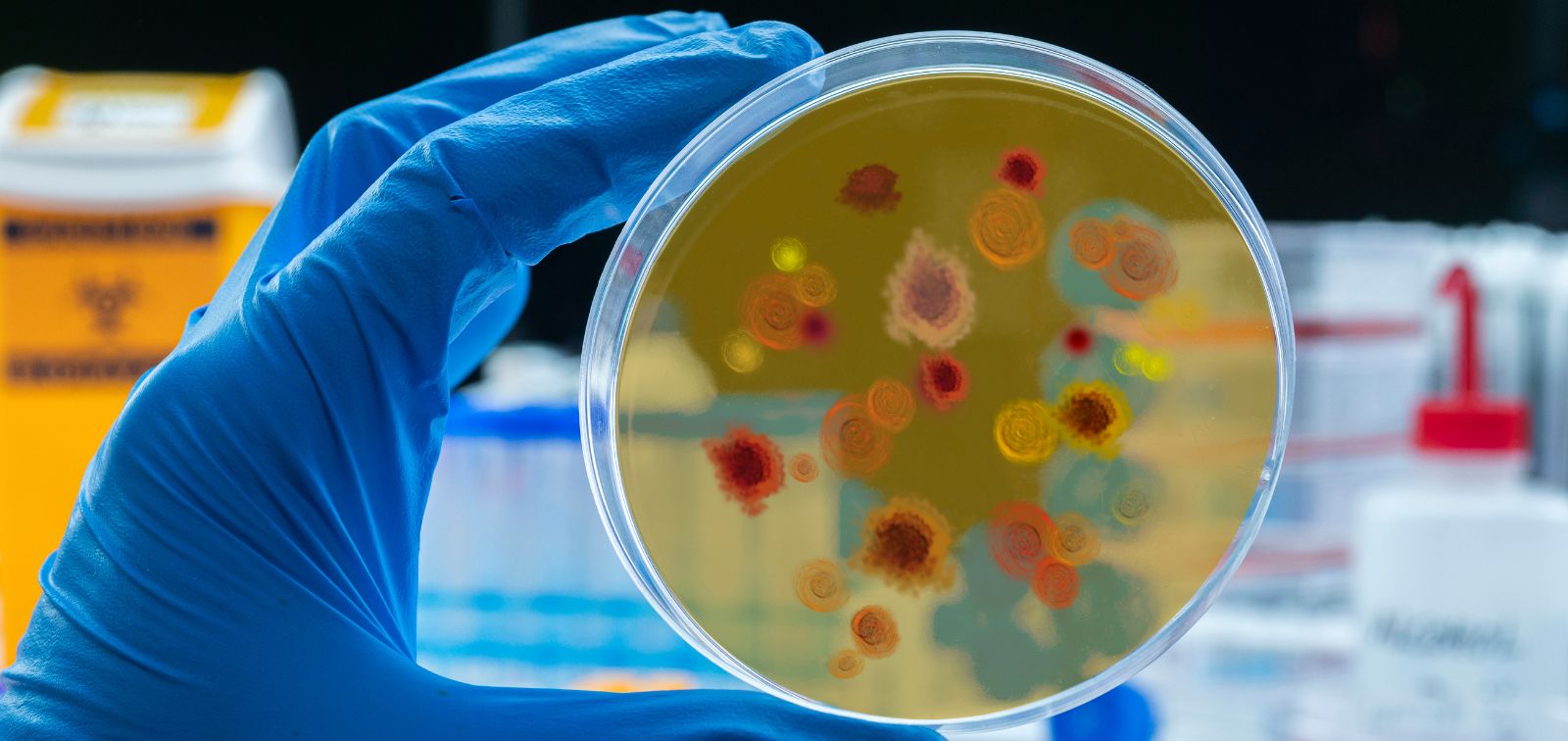MalTransc
Transcriptional regulation of adaptation and developmental decisions in malaria parasites: from epigenetic variation to directed transcriptional responses

- Duration
- 01/06/2020 - 31/01/2024
- Coordinator
- Alfred Córtes Closas
- Funded by
- Ministerio de Ciencia e Innovación - Agencia Estatal De Investigación. Reference: PID2019-107232RB-I00 Call: Proyectos I+D+i 2019 - Modalidades Retos Investigación» y Generación de Conocimiento
Transcriptional regulation plays a fundamental role in the biology of the protozoan parasite Plasmodium falciparum, which is responsible for the most severe forms of human malaria. Both developmental progression through a complex life cycle and adaptation to changes in the conditions of the environment are mainly regulated at the transcriptional level.
We and others have established that transcriptional variation regulated at the epigenetic level within isogenic parasite populations plays and adaptive role and regulates processes such as immune evasion, solute transport, erythrocyte invasion and sexual conversion, among others. More recently, we have demonstrated that malaria parasites can also produce rapid transcription factor-driven protective responses to changes in their environment. In spite of enormous progress in recent years, many fundamental questions about the molecular mechanisms regulating epigenetic variation and directed transcriptional responses in malaria still remain unanswered. In this project we will address some of these questions.
First, we will characterize the role of different genetic elements (e.g. promoters and coding sequences) in determining that a gene undergoes clonal variation regulated at the epigenetic level. Since heterochromatin underlies the epigenetic silencing of clonally variant genes, we will test the role of these elements in heterochromatin nucleation, spreading and maintenance. For this aim, we will mainly use CRISPR-Cas9 technology to manipulate the parasite genome and chromatin immunoprecipitation followed by quantitative PCR (ChIP-qPCR) or massive sequencing (ChIP-seq) analysis. We will also test the hypothesis that heterochromatin does not form de novo when clonally variant genes are silenced or dismantles completely when they are activated, but rather heterochromatin contracts or spreads from nearby reservoirs (the accordion model).
To identify the specific enzymes involved in heterochromatin formation and removal, we will use catalytically inactive Cas9 fusions (dCas9) and a proximity labeling approach (BioID). We will also study in detail the chromatin alterations, including histone post-translational modifications, associated with activation of clonally variant genes and with activation in response to changes in the environment.
In addition to studying general aspects of epigenetic variation, we will focus on the gene pfap2-g and the process that it controls, sexual conversion. This process is of enormous importance in parasite biology, because sexual conversion determines the formation of transmission stages. In the case of directed transcriptional responses, we will mainly focus on the gene pfap2-hs and the heat shock response.
Last, to identify new important phenotypes and processes linked to epigenetic variation, we will test the hypothesis that silencing of clag3 genes is linked to formation of dormant stages, which play a key role in parasite resistance to the frontline drug artemisinin. Altogether, this project is expected to contribute important new insight on the molecular mechanisms that regulate transcription, parasite adaptation to the conditions of the environment, and conversion into sexual forms.
Expected technical and international scientific impact
Malaria remains a major scourge for humanity, as it still kills almost half a million children and produces debilitating disease in 200 million people every year. In the current context of climate change, increased human mobility and political instability in many regions, how malaria will affect the world in the following years is largely unpredictable. Malaria may come back to areas such as Europe where it was eliminated some decades ago. At the moment, the fight against malaria is at a crossroads. Major progress in reducing the impact of malaria since year 2000 has now stalled, and progress is threatened by the emergence of artemisinin resistance. In the following years, we may see malaria go up again, as happened several times in history, or we can get back on track and progress further towards reduction and eventually erradication.
Although there are different views on whether or not this can be achieved within a fixed deadline, there is consensus that development of new tools and strategies based on a better knowledge of fundamental parasite biology is essential. This project fits with the idea of generating high quality new knowledge on the biology of Plasmodium falciparum, the parasite responsible for the most severe forms of human malaria and the vast majority of malaria deaths. It focuses on fundamental processes in parasite biology, such as the transcriptional mechanism of adaptation and survival upon changes in the environment in general, and on two more specific processes: resistance to heat shock mimicking host fever episodes, and sexual conversion.
Regarding resistance to heat shock, periodic fever is the most characteristic clinical symptom of malaria. Thus, it is surprising that until now nothing was known about how malaria parasites survive host fever episodes. Our identification of the transcription factor PfAP2-HS opens the way for a full understanding of the process.
Regarding sexual conversion, there is an increased interest on malaria transmission stages (gametocytes) and sexual conversion, because only by preventing transmission (in addition to curing patients) can malaria be eliminated. In this context, our research on pfap2-g is highly relevant, as this gene provides an ideal molecular marker to monitor how malaria elimination interventions affect parasite investment in transmission, and to define the human malaria infectious reservoir that needs to be targeted. In this regard, in addition to the identification of pfap2-g, our recent research has identified another molecular marker with potential valuable applications in epidemiological studies. Furthermore, one of the objectives in this project addresses a potential new mechanism of artemisinin resistance, the major challenge to current malaria control efforts.
Altogether, our research is basic in nature but focuses on processes of major public health importance and can yield new markers for molecular surveillance or reveal important new targets for drug development. Of note, while this is not a drug development project, many epigenetic factors and other proteins involved in transcription are validated drug targets for which a wealth of inhibitors and structural knowledge is available, mainly from cancer research. A better knowledge of the molecular machinery involved in the heat shock response or sexual conversion may lead to the development of new types of antimalarial drugs that interfere with these essential processes.
Total Funding
278.300 €
Our Team
Coordinator
-
 Alfred Cortés ICREA Research Professor
Alfred Cortés ICREA Research Professor
ISGlobal Team
-
 Núria Rovira Scientific Support Assistant - Laboratory
Núria Rovira Scientific Support Assistant - Laboratory -
 Elisabet Tintó Research Assistant
Elisabet Tintó Research Assistant -
-
 LUCAS ALBERTO MICHEL Bioestadistico
LUCAS ALBERTO MICHEL Bioestadistico -
 Alba Pérez Postdoctoral Fellow
Alba Pérez Postdoctoral Fellow -
Sandra Nhim Postdoctoral Researcher
Other projects
See Past ProjectsNHEPACHA
New Tools for the Diagnosis and Evaluation of Chagas Disease
RTS,S Vaccine Immunology Study
Study of immune correlates of protection against malaria after vaccination with RTS,S/AS01E: a comprehensive immunological arm of a Phase III double-blind, randomized, controlled multi-center trial
Euroleish.net
Control of Leishmaniasis. From bench to bedside and community
GREPIMER
Grup de recerca en patología importada i malaties emergents i re-emergents
TESEO
New chemotherapy regimens and biomarkers for Chagas Disease
ASINTMAL
Unravelling Disease Tolerance and Host Resistance in Afebrile 'P. falciparum' Infections: a Prospective Study in Mozambican Adults
ADAM
Malaria mass and focal drug administration to advance malaria elimination in Mozambique: accelerating programmatic implementation and policy translation
Science4Pandemics
Citizens engagement digital platform for collective intelligence in pandemics
HIDDENVIVAX
Novel organ-on-a-chip technology to study extracellular vesicles-mediated cryptic infections in Plasmodium vivax malaria
Subclinical Infections in Children and Long Term Health Effects
Infection acquisition in early life and health outcomes in childhood - MARATO TV3
Herramienta innovadora de detección de enfermedades y vacunación a población inmigrante en riesgo en España
Project Code: PI21/00651
Impacto de las coinfecciones en el balance de respuestas de anticuerpos y linfocitos T helper a antígenos diana de inmunidad natural y vacunal frente a patógenos humanos prominentes
Project Code: PI20/00866
EpiGen
Building Scalable Pathogen Genomic Epidemiology in Ethiopia
BOHEMIA
Broad One Health Endectocide-based Malaria Intervention in Africa
RESPONSE
Mechanisms of the transcriptional responses to changes in the environment in the malaria parasite Plasmodium falciparum
VivaxEVTalk
Extracellular Vesicles as Intercellular Communicators and Biomarkers of Cryptic Erythrocytic Infections in Plasmodium vivax malaria
VaMonoS
Unravelling the heterogoneity and function of monocytes in vaccination and immunity to malaria
CLIMSOCTRYPBOL
Insight on climate and social participatory research for integral management of vectorborne zoonosis caused by Trypanosoma cruzi and Leishmania spp. in the Bolivian Gran Chaco.
SexMal
Social affairs and sex in P. falciparum: implications for malaria elimination
MENA Migrant Health
Transforming data collection and surveillance to drive migrant health research, care and policy
MESA
Sharing knowledge and catalyzing research towards a malaria-free world
SMART
Identifying Severe Malaria with a new Aptamer-based Rapid diagnostic Test
GlycoTargets
New antimalarial therapies targeting the glycosylation pathways of ‘Plasmodium falciparum’
GenMoz
P. falciparum genomic intelligence in Mozambique





